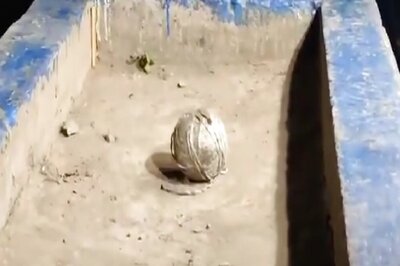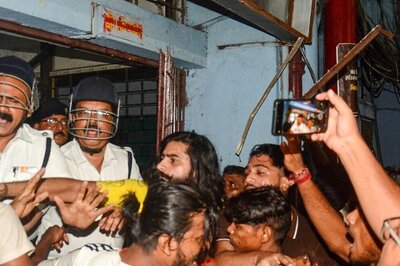
views
BANGALORE: Last rites of any person are considered as a mark of respect for all regardless of religion, caste, economic or social status.The agony of the family that has lost its member is evident and understandable.But what about the workers who work in the cemetery, electric crematoria, etc? City Express sheds some light on the problems faced by operators at electric crematoria including health concerns and other issues.The electric incinerators in different parts of the city are equipped with venture scrubber to filter the gas that is discharged from the chimney. When asked about the maintenance and gas discharged by these incinerators when the bodies are burnt, the crematorium operator at Wilson Garden said, “It is our responsibility to keep the premises extremely clean.Crematoria are a public place. Even politicians, actors and other important individuals of the society come here to perform various rituals and pay tribute to their near and dear ones. It does not cater to one strata of the society or a particular religion but is open to all.Hence good maintenance and hygiene plays an important part.” She further added, “The gas discharged by the incinerators does not have a serious impact on people in the surrounding areas as scrubbers and filters are inserted into the incinerators which filter the gases before releasing them into the air.It is probably as harmful as the smoke emitted by vehicles that contribute to high levels of pollution in the city.” Expressing his denial on the popular notion that two dead bodies are burnt together in a single incinerator, Eshwar Prasad, crematorium operator at Banashankari said that there are ten electric crematoriums in the city.He went on to explain, “There are two burners in every electric crematorium in the city. The combustion chamber of each burner has a limited space which can fit only one body. It takes an hour to turn a body into ash.Hence it is a wrong perception that two bodies are placed in a single burner.” Rs 50 will be charged for burning a dead body as maintenance fee in every electric crematorium in the city.Wages paid to these employees depend on their respective contracts.Operators at the crematoria also complained that some people who visit the crematoria to perform last rites often end up breaking window panes and glass doors in a perturbed state of mind.“People who indulge in such activities are mostly drunk and have no control over their acts. In such cases, we cannot really blame the families. However, on rare occasions the broken window panes and doors are repaired by the family.If the family fails to fix the damage caused by them, we inform the executive engineer, assistant executive engineer or junior engineer to look into the problem, ” explained Eshwar. On an average, Wilson Garden crematorium receives five to six dead bodies per day.“We try to explain and coax the families to take the dead body to nearby crematoria if we fail to accommodate space to burn the bodies, as we have only two incinerators, ” said the crematorium operator at Wilson Garden.When asked about the frequent power cuts in the city and how the electric crematoria manage to burn the bodies placed inside the incinerator, she explained that automatic generators which have a capacity of 180 kilo watts would be switched on during power cuts in the city.




















Comments
0 comment